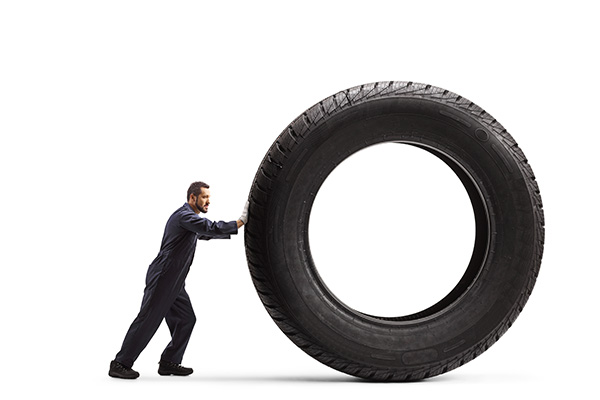
When it comes to personalizing your vehicle, upgrading to bigger wheels and tires is a popular choice among car owners. The idea of giving your car a more aggressive posture, improving its performance, or simply making it stand out on the road is appealing. But, like any modification, there are both benefits and drawbacks to consider before making the switch. Whether you're after a more dynamic look or an enhanced driving experience, it’s essential to weigh the pros and cons of upgrading to bigger wheels and tires.
Why Bigger Wheels Are So Popular
Let’s face it, bigger wheels just look cool. One of the most compelling reasons car owners choose to upgrade their wheels and tires is the aesthetic appeal. Larger wheels give your vehicle a sportier, more aggressive appearance that can completely transform its look. If you're aiming for a customized appearance, bigger wheels can make your car stand out in a crowd. They also tend to fill the wheel well better, giving your car a more proportional and balanced look.
But before you get carried away with appearances, it's crucial to consider how these changes might affect the rest of your vehicle. Bigger wheels can drastically alter the way your car handles and performs, and these changes aren’t always positive.
The Pros of Upgrading to Bigger Wheels and Tires
Improved Aesthetics
This is probably the most common reason drivers opt for larger wheels. A bigger set of rims can instantly elevate your vehicle’s appearance, giving it a sportier or more luxurious look.
Enhanced Handling
Bigger wheels are often associated with better handling, particularly when paired with lower-profile tires. These tires have less sidewall, meaning there is less flex when cornering, which can improve your car’s grip on the road and provide more responsive steering.
Performance Tires Compatibility
Larger wheels give you the opportunity to fit performance tires, which are designed for better traction and control. This is especially beneficial if you enjoy driving at higher speeds or want more precision when cornering.
Increased Ground Clearance
Depending on the size of your new wheels, you may experience a slight increase in ground clearance. This can be beneficial for navigating uneven terrain or avoiding obstacles like speed bumps.
The Cons of Upgrading to Bigger Wheels and Tires
Decreased Fuel Efficiency
One of the biggest drawbacks of larger wheels is the negative impact on fuel efficiency. Bigger wheels are typically heavier, and the additional weight increases the workload on your engine, which burns more fuel. Wider tires also have more rolling resistance, further reducing fuel economy.
Reduced Ride Comfort
Larger wheels are often paired with low-profile tires, which have a thinner sidewall. This means there’s less cushioning between the tire and the road, resulting in a rougher ride, especially on bumpy or uneven surfaces.
Increased Tire Wear
Bigger wheels can accelerate tire wear, especially if you opt for performance tires. Low-profile tires are more prone to damage from potholes or curbs, and the tread can wear down faster due to the increased grip and friction they provide.
Higher Replacement Costs
Larger wheels and tires tend to be more expensive, both for the initial purchase and for replacements. This includes not only the cost of the tires themselves but also potential maintenance and alignment adjustments that may be required due to the increased size.
Consider the Costs
Upgrading to bigger wheels and tires is not a decision to be taken lightly—both figuratively and literally. The cost of new wheels and tires can add up quickly, especially if you opt for high-performance options. You’ll also need to consider the cost of installation and any necessary adjustments to your vehicle’s suspension and alignment.
Moreover, bigger wheels often require specialized maintenance and can wear out faster than standard-sized wheels, leading to additional expenses down the line. If budget is a concern, it’s essential to weigh these costs against the potential benefits before making a decision.
Don’t risk making the wrong upgrade—trust the experienced technicians at Premier Automotive Service to handle your wheel and tire needs. Contact us now to book your service and give your car the upgrade it deserves!